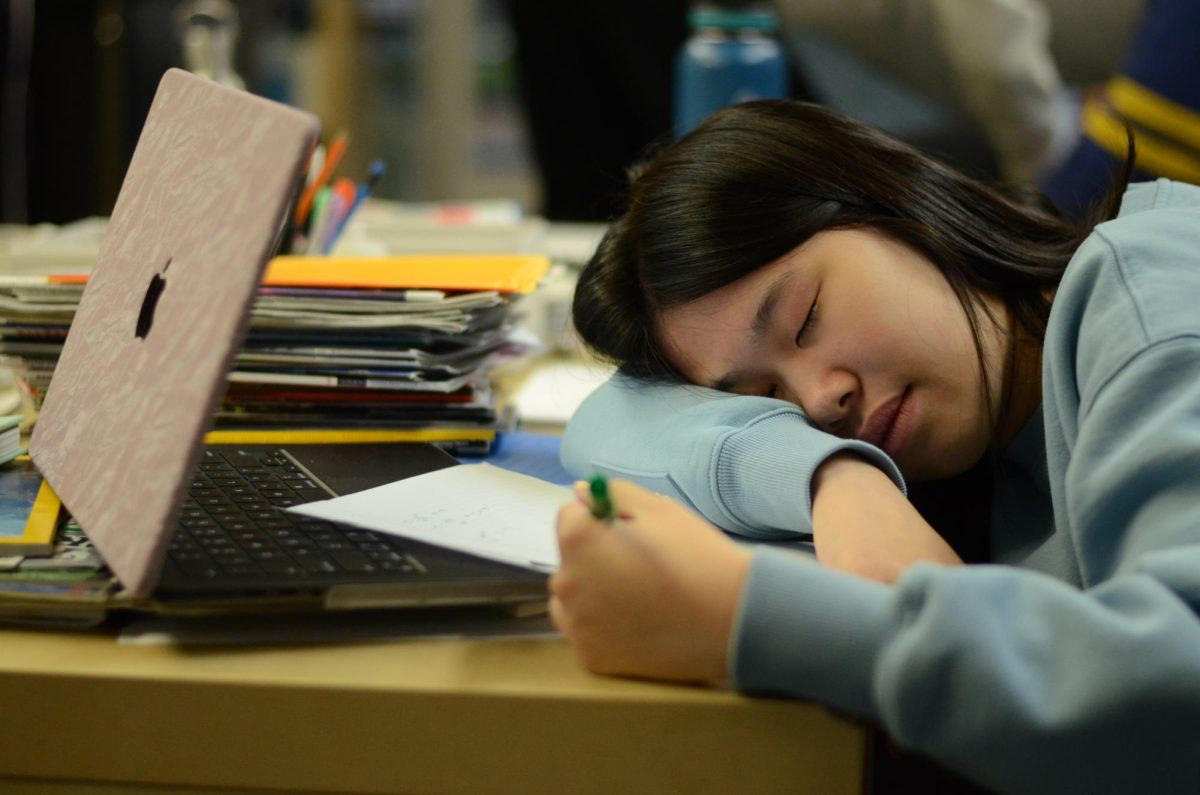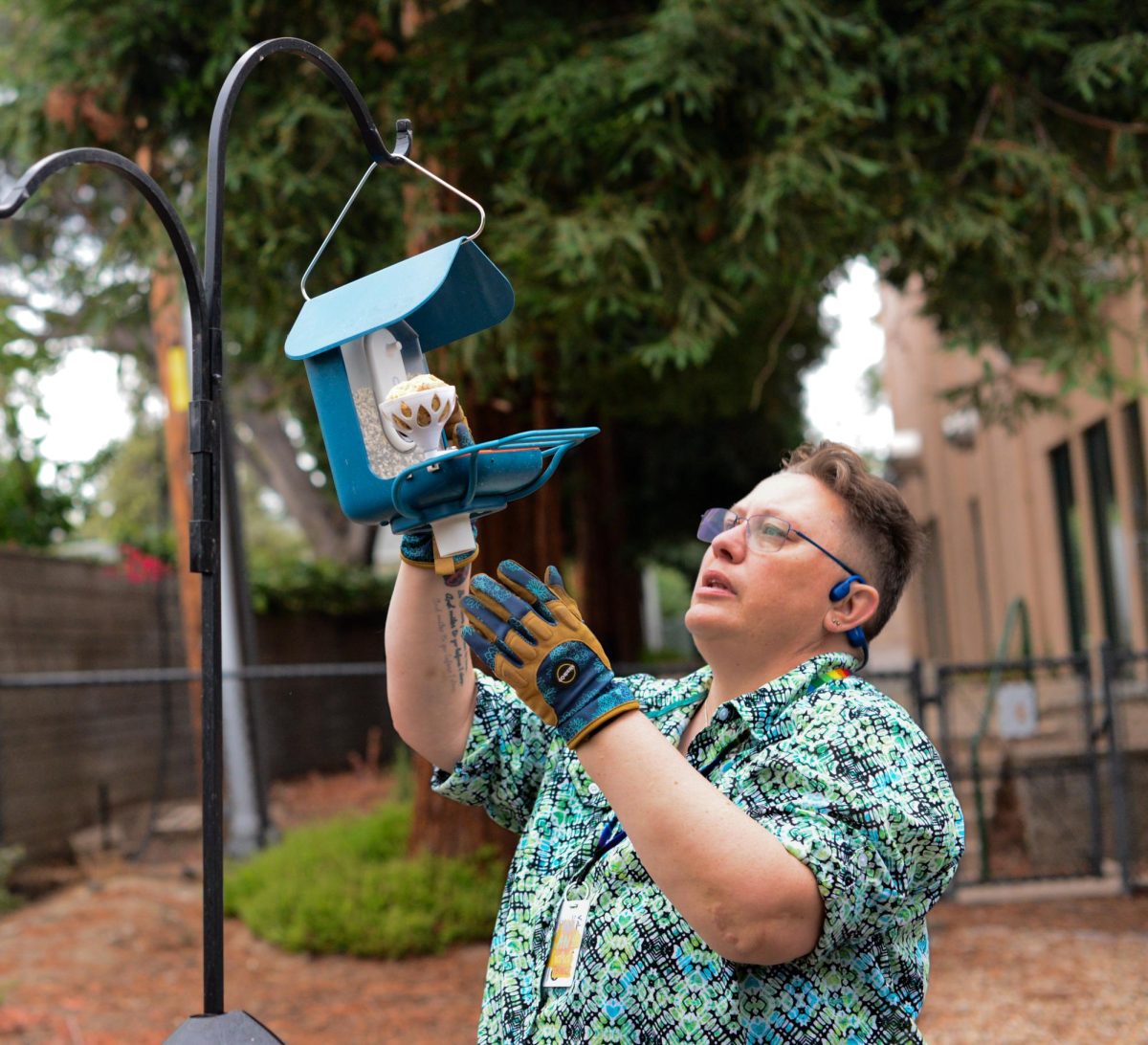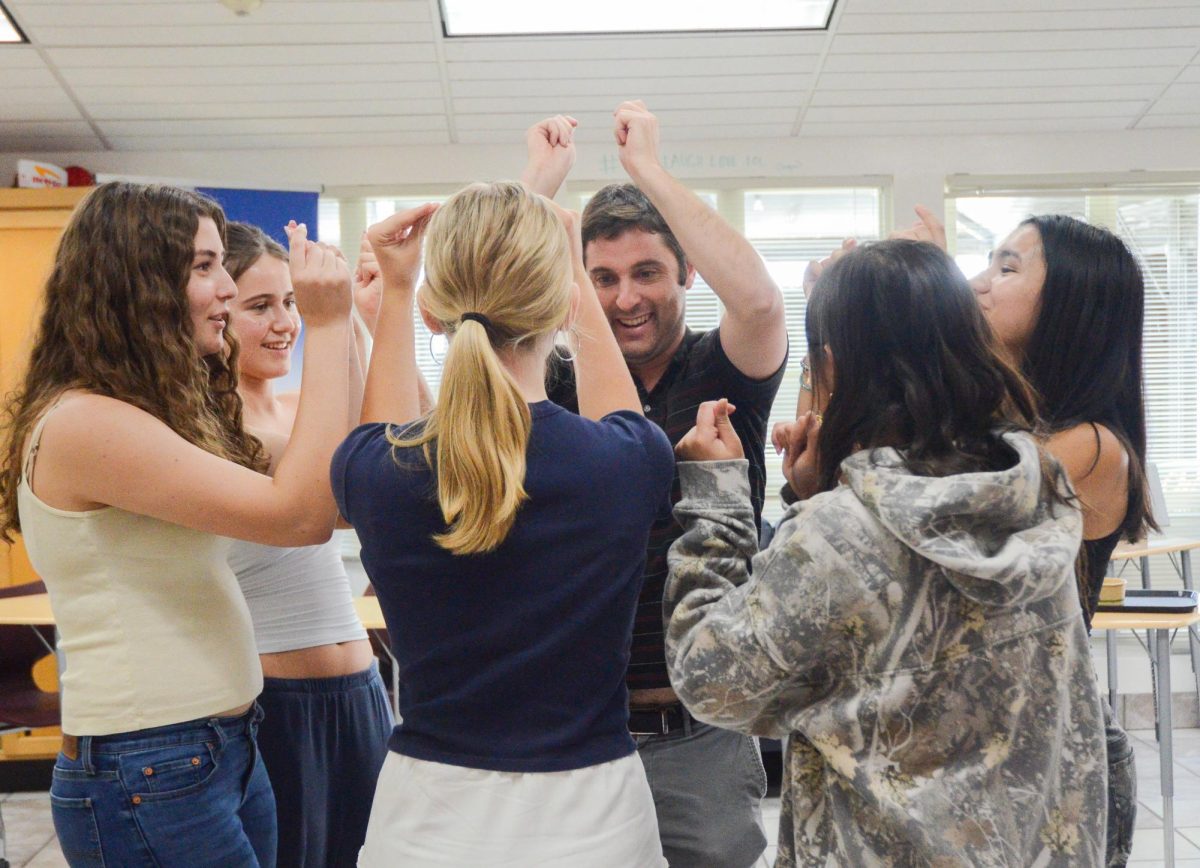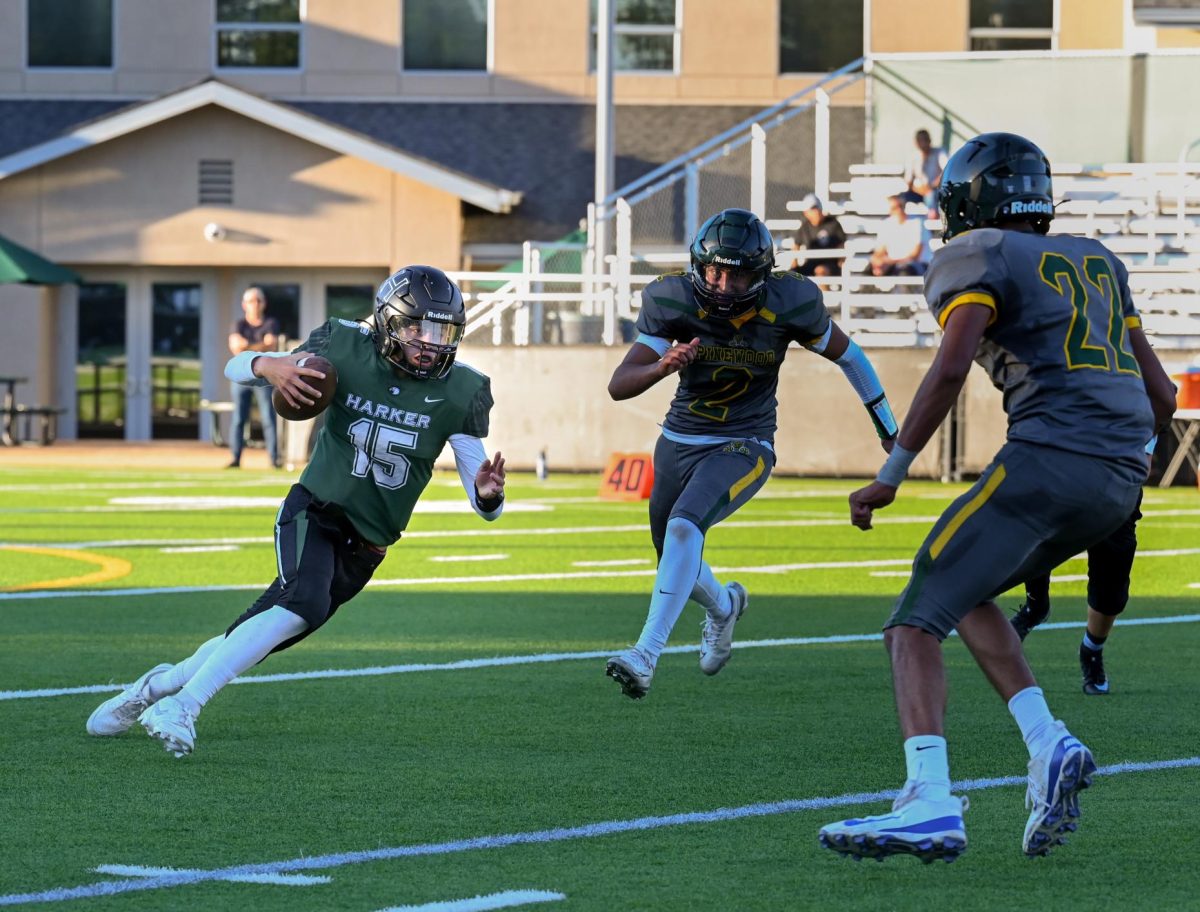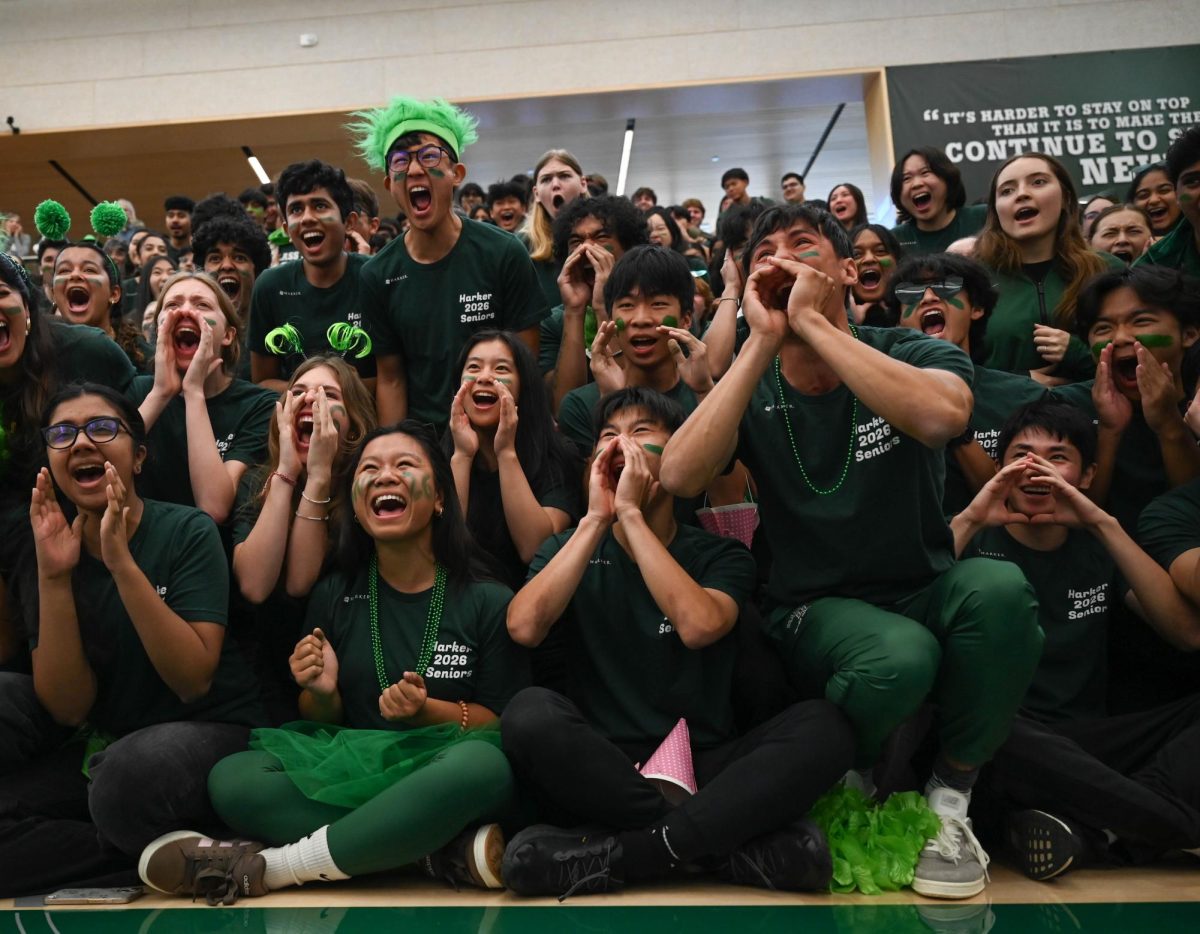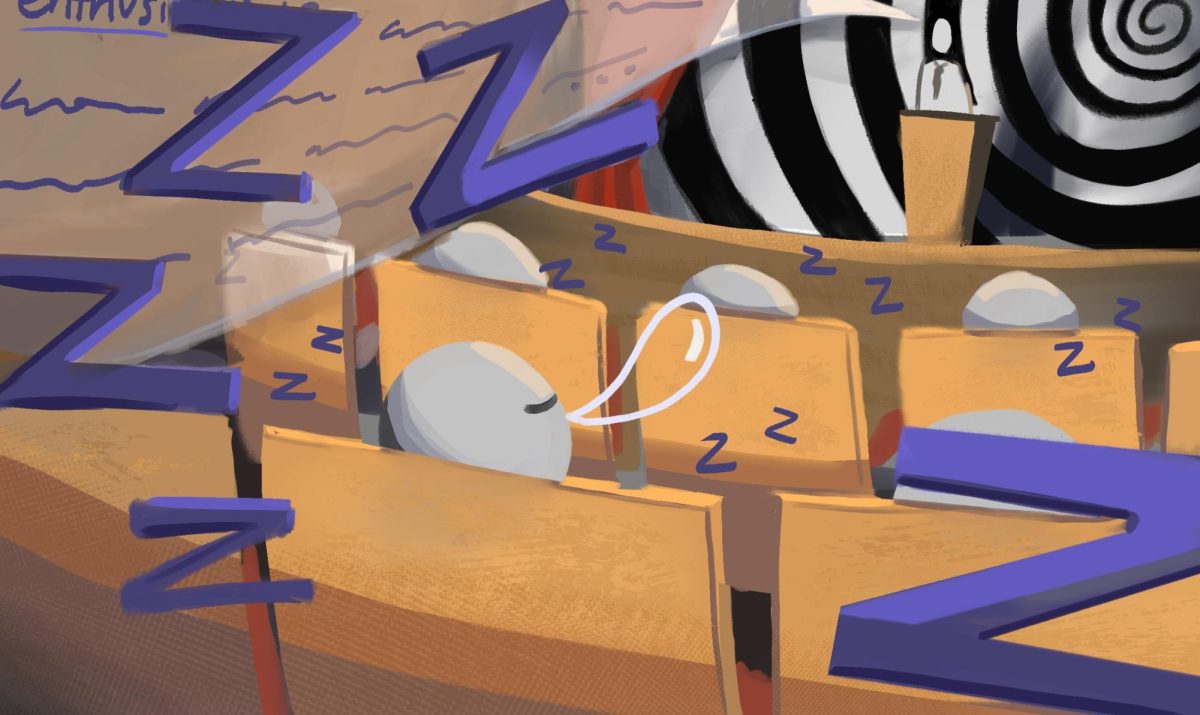An alarm rings at 7 a.m. A student forces their eyes open, exhausted from staying up until 4 a.m. the night before to finish their history project, skim over their English reading and complete their chemistry worksheet. Dragging themselves out of bed, they barely make it to school on time, eyes still half-closed, just to slog through four torturous periods of class. When they get home, they turn to their mountains of homework only to find that they remember nothing from class, staying up all night to finish it. And the cycle continues.
Due to the rigorous academic expectations in high school and plethora of extracurriculars that students participate in, they can easily get burnt out and sleep-deprived. 72.7% of American high schoolers do not get enough sleep, and people who sleep 5-6 hours a night are 19% less productive than people who sleep 7-8 hours. Staying up all night to study can later harm students’ ability to learn in a vicious cycle. To combat this issue, some Harker students take mental health breaks, or “rest days”—days where students miss school to catch up on sleep, recharge emotionally and complete any missing or overdue assignments.
“It’s a good way to help promote your own well being, especially when there’s long periods between holidays or official school off days,” LIFE board member Atharv Goel (12) said. “Especially after robotics trips, sometimes I had to take a day off, because those can be really stressful and I’m usually really busy with a lot of things.”
Attendance Coordinator Ritu Raj notes that parents often call in to say their child is “not feeling well” in order to justify rest days. After three absences in one semester, parents are required to provide a formal excuse. After five absences, students risk losing credit in a course, as outlined by the Harker Handbook.
“As soon as you reach that ‘five’ count, it does not matter what reason it is,” Raj said. “We send home reports saying that the student has reached these many absences in a particular class, which is approximately this much percentage they have missed school. Moving forward, we do need documentation for students to not reach the point where the credit can be removed.”
While the school allows students to take these mental health breaks to a certain extent, there are limits to how many absences the school can accommodate without affecting the student’s learning experience. Despite the necessity of rest days, the school administration has a responsibility to ensure minimal student absences.
“This really gets down to communication, and we just want to make sure that we’re facilitating and helping with transitioning back to school as quickly as possible once they’re ready to come back,” Dean of Students Kevin Williamson said. “If a student can’t master the material because they’ve just gotten so far behind in a class, they may be asked to drop a class.”
The school’s attendance policy strives to keep students on track academically, but it raises questions about whether students’ mental health is receiving the support it deserves. Academic counselor Kelly Leahy-McKeown suggested that students should start taking on less responsibilities to prevent the need for future rest days.
“Students in this school have a culture where they overbook themselves,” Leahy-McKeown said. “Reevaluating what their schedule looks like in the first place and making really strong conscientious preventative decisions around that is important. It is a case-by-case basis, but if we’re taking a schedule that works, we might not need those rest days as much.”
Junior Judi Abdelrazik acknowledges the importance of taking rest days and the challenges in taking them. She recommends students plan their rest days well and consider alternative ways to relax, like the fall break or late start days.
“In the end, if mental health is declining, so are your grades,” Judi said. “Considering taking a day off can set you back drastically, I think that fall break days are a great alternative. Another good way for students to mitigate this issue is to learn how to maximize the usage of their weekends.”


















![“[Building nerf blasters] became this outlet of creativity for me that hasn't been matched by anything else. The process [of] making a build complete to your desire is such a painstakingly difficult process, but I've had to learn from [the skills needed from] soldering to proper painting. There's so many different options for everything, if you think about it, it exists. The best part is [that] if it doesn't exist, you can build it yourself," Ishaan Parate said.](https://harkeraquila.com/wp-content/uploads/2022/08/DSC_8149-900x604.jpg)




![“When I came into high school, I was ready to be a follower. But DECA was a game changer for me. It helped me overcome my fear of public speaking, and it's played such a major role in who I've become today. To be able to successfully lead a chapter of 150 students, an officer team and be one of the upperclassmen I once really admired is something I'm [really] proud of,” Anvitha Tummala ('21) said.](https://harkeraquila.com/wp-content/uploads/2021/07/Screen-Shot-2021-07-25-at-9.50.05-AM-900x594.png)







![“I think getting up in the morning and having a sense of purpose [is exciting]. I think without a certain amount of drive, life is kind of obsolete and mundane, and I think having that every single day is what makes each day unique and kind of makes life exciting,” Neymika Jain (12) said.](https://harkeraquila.com/wp-content/uploads/2017/06/Screen-Shot-2017-06-03-at-4.54.16-PM.png)








![“My slogan is ‘slow feet, don’t eat, and I’m hungry.’ You need to run fast to get where you are–you aren't going to get those championships if you aren't fast,” Angel Cervantes (12) said. “I want to do well in school on my tests and in track and win championships for my team. I live by that, [and] I can do that anywhere: in the classroom or on the field.”](https://harkeraquila.com/wp-content/uploads/2018/06/DSC5146-900x601.jpg)
![“[Volleyball has] taught me how to fall correctly, and another thing it taught is that you don’t have to be the best at something to be good at it. If you just hit the ball in a smart way, then it still scores points and you’re good at it. You could be a background player and still make a much bigger impact on the team than you would think,” Anya Gert (’20) said.](https://harkeraquila.com/wp-content/uploads/2020/06/AnnaGert_JinTuan_HoHPhotoEdited-600x900.jpeg)

![“I'm not nearly there yet, but [my confidence has] definitely been getting better since I was pretty shy and timid coming into Harker my freshman year. I know that there's a lot of people that are really confident in what they do, and I really admire them. Everyone's so driven and that has really pushed me to kind of try to find my own place in high school and be more confident,” Alyssa Huang (’20) said.](https://harkeraquila.com/wp-content/uploads/2020/06/AlyssaHuang_EmilyChen_HoHPhoto-900x749.jpeg)



